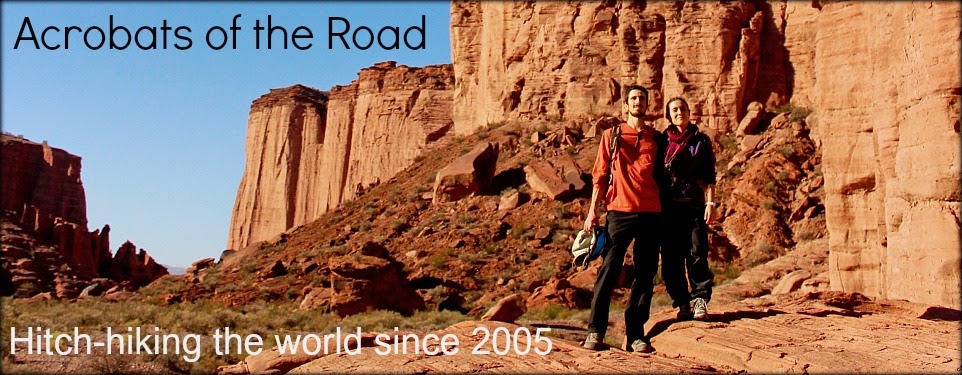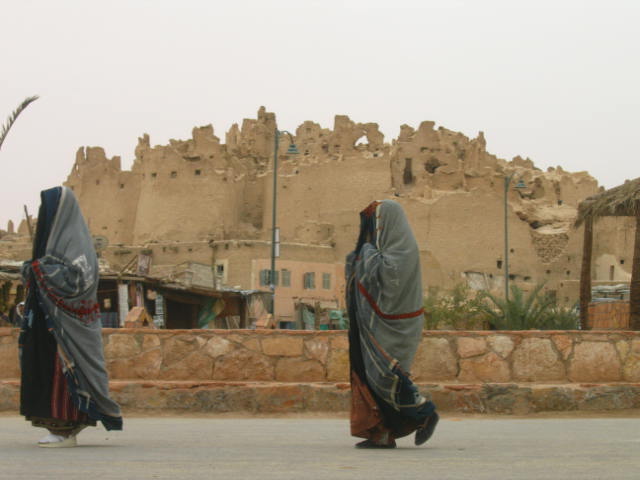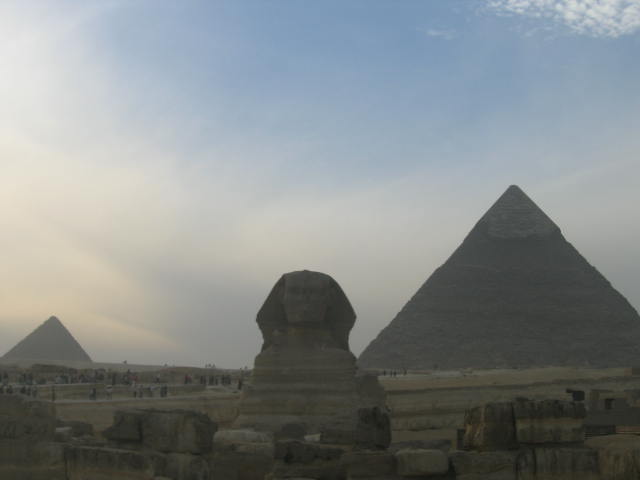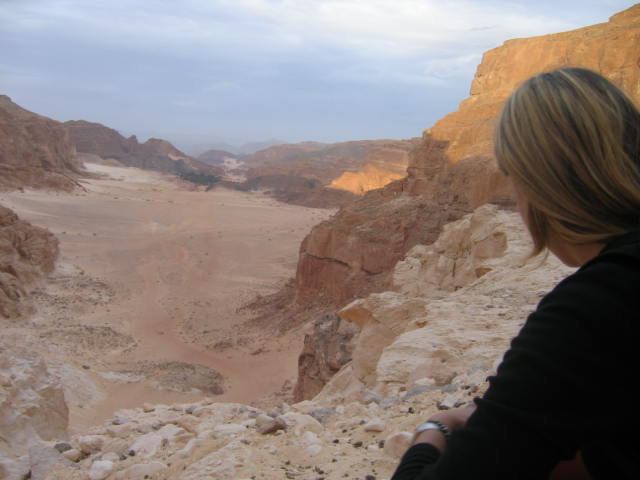


Photos: 1. Pyramids. 2. Kids at SOS Children Village at Al Amria Suburb. 3. Magdy and his cusin, guardians of El Alamein German Militar Cemetery.
The difference is great. Between Alexander the Great and me, I mean. He counted with a 50.000 men strong army. I am alone and traveling by thumb. He strived to forge an empire, I like them only when they crumble down. Maybe motivated by the unoble ambition of having something in common with the Macedonian Star it was that I put the finger on the map over Siwa for the first time. At least this way we would have a route in common. Siwa is an oasis emerging against all possible forecast 300 kms south of the Mediterranean Coast into the sands of the Sahara Desert, not far from the Lybian border. It always owed its fame to being the site of one of the most famous oracles of the Ancient World: the Oracle of Amun, that was believed by the Greeks to be a local manifestation of Zeus. Having taken Egypt from the Persians without fighting, Alexander marched from Memphis magnetized by the fame of the Oracle, anxious to legitimate his sonship of Zeus.
When I left Cairo, the adventure had an operistic oberture when I discovered that the road to Alexandria boasts in its western side not less than the Pyramids. The road to Iskendereia (one feels in the Classic Age when using the local label) was anything but average. First my wallet with 100 dolars was stolen by some impoverished mummy, leaving me with mere 20 cents and 220 kms ahead. 1-0 for Alexander. In such humiliating circumstances a Daewoo stops after only 15 minutes waiting. The driver was a man in his early sixties, spotlessly dress in a suit, while her companion was a woman: 40 years younger than him, thick lips, dark skin and a blue hejab covering her hair. Then the man, becaming a strange statistic case for my road notes, offers me the lady with the only condition of having preferential seat. That’s what I calll to receive 1000 spoons when you need a fork, and it’s only another example (gay truck drivers, etc) of those choices that, repressed by a police force that applies the Qoran, only finds decompression in sealed private spaces and with foreigners. Anyway, 1-1.
On the first night I was hosted and fed by two watchmen that would jump out of their bed with a loaded gun at the minimum noise. On the morning a taxi driver accepted to take me for free to Alexandria, strange event in a country where somebody seems to have swap the Quran for Adam Smiths’s books. “Why not money?” –the man cried and bumped the wheel with his head. He droped me in the suburb of Al Amria. 30 kms from the center. There, a woman that steps down from a motorcycle taxi guides me without my request to a branch of SOS Children Villages. All without words, as obeying a secret choreography of destiny. She is one of the mothers that literally consagrate their lives to raise and educate orphans, from KG to University. She makes me visit each of the houses, 75 children in total. After the visit I could readily say that the village is truly an isle of sanity in the middle the urban chaos that pervades the rest of the suburb, where children work in the vegetable market that smells to donkey’s flatulence.
When I reached the center of Alexandria –in the car of a manager that payed my hotel night-. Looking around I was assaulted by the impression of having been there for ever. I would have never imagined that Alexandria resembled so much Mar del Plata (my city in Argentina). With french style architecture lined against the seaside boulevard conveniently named corniche, horse carriages and cafes that mix in their menu british ale with greek food, Alexandria has allowed the belle epoche a passage to modernity. What reaches the present is an hybrid: elaborated iron street lamps and trams shake hands with shisha bars and local fishermen that knee over the sand at prayer times. The number of foreign consulates in the city attests to its cosmopolitan history, but it also makes you wonder in what does the Slovakian consulate use their time…
When Alexander arrived here he found reportedly a tiny fishing village calle Rhacotis. Over that embrio he ordered the foundation of a big city that would bear his name and would become the greatest center of culture of the Classical World, with the famous Alexandrian Library as its centerpiece, which is said to have contained 500,000 scrolls. In its rooms Euclides proposed his geometry and the circumference of the Earth was first calculated. In the 4th C. the Library was burnt down, in the name of Christianity. Egyptian Authority needed 1700 years before erecting a substitute. The fact that it was inaugurated in 2001 under the government of the dictator –still in power- Mubarak. Also nowadays Egypt just seems the last place on Earth that could natural produce such an offsrping as the replacement fot the famed library. (The average Egyptian cannot read a map) The new library is, in any case, an esthetic triumph: its glassed surface projects a beam of light, including the other local legend, the Lighthouse of Alexandria, which rated among the Seven Wonders of the Old World.
From Alexandria, the way to Siwa. Distant some 600 kms, is made in an “L” movement, as the horse in the chess. It ‘s 300 kms to the west along the Mediterranean Coast until Marsah Matrouh, where the Afrika Korps had their base during WWII. I travel first in a Toyota Corolla of a Egyptian Christian residing in Italy, who presents me a kilo of dates an a weird sacred oil that –he assures- will protect me from the wolves of the desert. The fiirst day I only covered 100 kms, arriving by night to the German at El Alamein, where 4200 soldiers rest. As said by Albert Schweitzer: “There is not a better argument for peace that the tomb of a soldier”. Magdy, member of the bedouin family that guards the mausoleum, allows me to camp outside its walls. The we trade: he offers me bread and cheese and I write a letter in English to somebody called Jean Lucqe in France. Then he asks me why I don’t believe in God. He is brave enough and goes on with an analogy: “If there are 10 people and 8 tell you that certain place is dangerous, do you believe them?” Ontology by consensus, a bedouin masterpiece. I remind him that the 4200 soldiers behind us were also obeying a majority, not to talk about the terror that threads consensus, not to talk aboout Mubarak, the new Faraon of Egypt… The next day I made it to Marsah Matrouh.

















